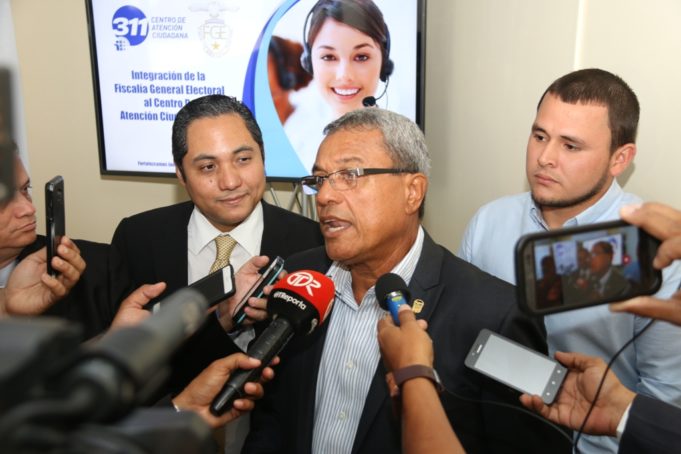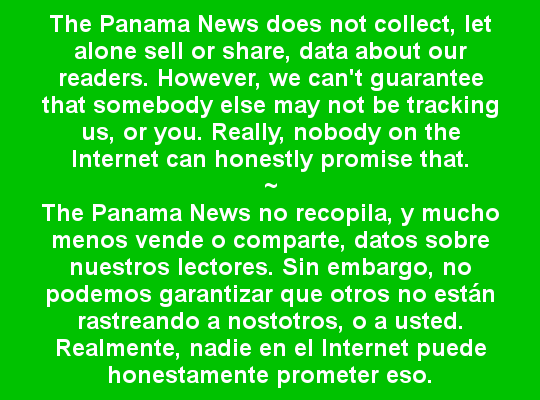
A system that won’t or can’t act on it
doesn’t make corruption “fake news”
The Electoral Tribunal is promoting a “Digital Ethics Pact” for the 2019 election campaign. They didn’t consult the online media beforehand. It’s really not a pact but something more on the order of a decree that they can’t readily enforce.
They also never investigated the apparent digital offenses of the last elections. They never looked into the racist and homophobic attacks that went viral. They never looked into the pre-election hacker attacks on just about all online media that Ricardo Martinelli did not control. They never looked into the provenance of the Cambio Democratico campaign database that by all appearances incorporated information taken from government records that are supposed to be confidential, including those of the Electoral Tribunal itself.
The spreading of scurrilous attacks and politically motivated lies online as a campaign tactic? That the ” pact” does, making special mention of the use of bots to do it. Only scoundrels would object to that.
But what is their standard of “fake news?” They seek to prohibit “affirmations of illegal conduct that have not been judged by the competent courts.”
That is, any corruption that was never investigated by Panamanian authorities never happened. That is, any corruption against which authorities have taken some steps but those who apparently did it have gone into hiding, or have sent in lawyers to file motion after frivolous motion and appeals based on these until the statute of limitations has run out, never happened. That no public official or political party took money from Odebrecht. That gangland shootings were not part of the PRD primary process in the run-up to the 2014 elections. That the Martinelistas did not engage in massive vote-buying with resources derived from public funds last time. That Ricardo Martinelli’s use of public resources to purchase a media empire that was mobilized in the last elections never happened.
The Electoral Tribunal, a tool of the political parties, thus seeks to take a necessarily central issue out of the public discourse over the next year, the rampant corruption, usually with impunity, that we have seen. No honest and serious online medium will accept that.
Maduro’s “re-election”
Nobody who lives in the real world accepts the claim that Venezuelan President Nicolás Maduro just received a mandate from his country’s people.
This does not mean that anybody ought to accept foreign intervention by powers that say that the Honduran president received a mandate from his country’s people, or that Brazil’s president represents his country’s people in any democratic sense of the word.
Would the Venezuelan opposition be worse than Maduro? Perhaps. But under their country’s laws they were owed a presidential recall referendum and they were cheated out of it.
The general test for diplomatic relations is that the institution, person or group who actually exercises power in a nation is recognized as the government without regard to how well he, she, they or it is liked abroad. When countries go to war against one another this is an exception — one to be avoided if possible and there is conduct so egregious, like genocide or apartheid, as to cause other nations to turn their backs on a country. A stolen election, or one that’s rigged, is usually not a reason for such shunning.
With one of the several governments in the hemisphere that does not pass the democracy smell test, Venezuela limps along in extraordinary poverty. Its government qualifies for recognition but is not as any other country’s worthy friend. The suffering people of that sister Bolivarian republic do merit the assistance of Panama and other governments in the region. We should be feeding Venezuelans, but not Maduro’s ego.
Bear in mind…













